
‘There was no oversight’: NH child advocate has been a watchdog for children's care. Now, the office is on the chopping block
Cassandra Sanchez hadn’t left the parking lot before she hit send on the email.

‘It’s everything’: In largest rally yet, Trump protestors descend on Concord
Sara McNeil said she felt overwhelmed.
Most Read
 ‘There was no oversight’: NH child advocate has been a watchdog for children's care. Now, the office is on the chopping block
‘There was no oversight’: NH child advocate has been a watchdog for children's care. Now, the office is on the chopping block
 Volunteer group wants to help homeless clean up their camp
Volunteer group wants to help homeless clean up their camp
 ‘Less finger pointing, more communication’: Longtime Chichester residents share hopes before second town meeting
‘Less finger pointing, more communication’: Longtime Chichester residents share hopes before second town meeting
 Casella Waste Systems’ landfill project in New Hampshire’s North Country denied permit
Casella Waste Systems’ landfill project in New Hampshire’s North Country denied permit
 New Healthy Buffalo owner to build market in Chichester
New Healthy Buffalo owner to build market in Chichester
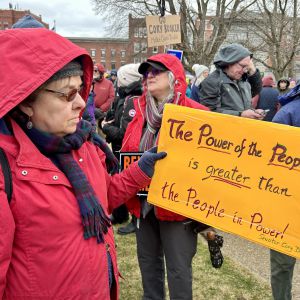 ‘It’s everything’: In largest rally yet, Trump protestors descend on Concord
‘It’s everything’: In largest rally yet, Trump protestors descend on Concord
Editors Picks
 The Monitor’s guide to the New Hampshire legislature
The Monitor’s guide to the New Hampshire legislature
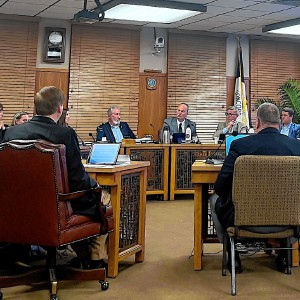 ‘That wasn’t the charge we were given’ – New city councilors question golf clubhouse options
‘That wasn’t the charge we were given’ – New city councilors question golf clubhouse options
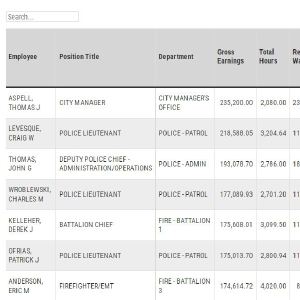 Sunshine Week: Searchable database of what Concord city employees were paid in 2024
Sunshine Week: Searchable database of what Concord city employees were paid in 2024
 Immigrants in New Hampshire face uncertainty as temporary protections expire soon
Immigrants in New Hampshire face uncertainty as temporary protections expire soon
Sports

12 Concord student-athletes sign on to play at the collegiate level
Every year, thousands of high school student-athletes make the tough decision of where to continue their education while playing college sports. For 12 Concord High School seniors, the time to announce their future plans has arrived.
 Concord’s USA Ninja Challenge aligned with changes to Pentathlon before LA 2028 Olympics
Concord’s USA Ninja Challenge aligned with changes to Pentathlon before LA 2028 Olympics
 Monitor names winter 2024-25 Players of the Season
Monitor names winter 2024-25 Players of the Season
Opinion

Karishma Manzur, Ph.D. is a science writer living in Exeter. She volunteers with various groups, including the New Hampshire Coalition for a Just Peace in the Middle East, which includes state chapters of Veterans for Peace, Jewish Voice for Peace, Peace Action and several other organizations.
 Opinion: Courage and care count
Opinion: Courage and care count
 Opinion: What rough beast is slouching toward us to be born
Opinion: What rough beast is slouching toward us to be born
 Opinion: The special education gimmick in NH school voucher rules
Opinion: The special education gimmick in NH school voucher rules
 Opinion: What Trump really means by government efficiency
Opinion: What Trump really means by government efficiency

Your Daily Puzzles

An approachable redesign to a classic. Explore our "hints."

A quick daily flip. Finally, someone cracked the code on digital jigsaw puzzles.

Chess but with chaos: Every day is a unique, wacky board.

Word search but as a strategy game. Clearing the board feels really good.

Align the letters in just the right way to spell a word. And then more words.
Politics

Town elections offer preview of citizenship voting rules being considered nationwide
A voter in Milford, New Hampshire, missed out on approving the town’s $19 million operating budget, electing a cemetery trustee and buying a new dump truck. In Durham, an 18-year-old high school student did not get a say in who should serve on the school board or whether $125,000 should go toward replacing artificial turf on athletic fields.
 Medical aid in dying, education funding, transgender issues: What to look for in the State House this week
Medical aid in dying, education funding, transgender issues: What to look for in the State House this week
 On the Trail: Shaheen’s retirement sparks a competitive NH Senate race
On the Trail: Shaheen’s retirement sparks a competitive NH Senate race
 ‘If it affects one, it’s going to affect all’: Dozens protest federal firings in Concord
‘If it affects one, it’s going to affect all’: Dozens protest federal firings in Concord
 On the Trail: Window closing on Shaheen decision to run in 2026
On the Trail: Window closing on Shaheen decision to run in 2026
Arts & Life

Evolution Expo bringing wellness to Concord this weekend
The highly anticipated 5th Evolution Expo is set to take place on Sunday, April 6, 2025, at the Grappone Conference Center in Concord. Hosted by Holistic Pros, this event is dedicated to empowering individuals with alternative and complementary care options.
 Around Concord: Cali Arepa brings ‘a little bit of Colombia’ to the Capital Region
Around Concord: Cali Arepa brings ‘a little bit of Colombia’ to the Capital Region
 Around Concord: On-stage dynamite, LEE & DR. G are ‘stunningly live’
Around Concord: On-stage dynamite, LEE & DR. G are ‘stunningly live’
Obituaries
 Pamela Gilchrist Munnell
Pamela Gilchrist Munnell
[IMAGE]Pamela Gilchrist Munnell Concord, NH - Pamela Gilchrist Munnell, 61, passed away peacefully on March 26, 2025, surrounded by her loving family. Pam grew up in Wellesley MA where she graduated from Dana Hall and then graduated from... remainder of obit for Pamela Gilchrist Munnell
 Cynthia Charlotte Mitchell
Cynthia Charlotte Mitchell
Cynthia Charlotte (Cass) Mitchell Concord, NH - Cynthia Charlotte (Cass) Mitchell passed away on Monday, March 31, 2025 at the age of 96. She was born in Concord, N.H. on October 25, 1928, the daughter of the late Ellery E. Cass and Emm... remainder of obit for Cynthia Charlotte Mitchell
 Jean M. Crouch
Jean M. Crouch
Penacook, NH - Jean M. Crouch, age 70, of Borough Road passed away unexpectedly on Thursday, March 27, 2025 at Elliot Hospital in Manchester. Jean dedicated her life to helping others, a champion for countless causes, her contributi... remainder of obit for Jean M. Crouch
 Thomas Moore Celebration of Life
Thomas Moore Celebration of Life
Thomas (Tucker) Moore Celebration of Life Concord, NH - Sunday, May 11. 2025. 1-4 pm. The Broken Tee Restaurant at Beaver Meadow Golf Club, Concord, NH. All who knew Tom (Tucker) are invited to attend this remembrance and tribute to his... remainder of obit for Thomas Moore Celebration of Life


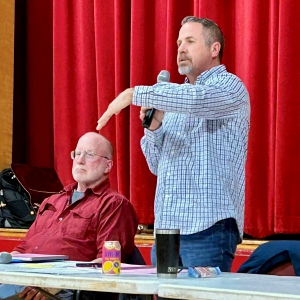 Chichester reinstates most of town budget eliminated weeks ago
Chichester reinstates most of town budget eliminated weeks ago
 Ayotte crusaded against a ‘broken’ bail system. Defense lawyers say it worked just fine
Ayotte crusaded against a ‘broken’ bail system. Defense lawyers say it worked just fine
 Does New Hampshire still need the Housing Appeals Board?
Does New Hampshire still need the Housing Appeals Board?
 High school track previews: Concord looks to build off of record-breaking season
High school track previews: Concord looks to build off of record-breaking season
 Comics in Concord: Old School Comic Show bringing hundreds to Everett Arena
Comics in Concord: Old School Comic Show bringing hundreds to Everett Arena
 Margaritas in Concord holding 40th anniversary bash
Margaritas in Concord holding 40th anniversary bash
 ‘The revenue just isn’t there’: House Finance Committee slashes $271M in jobs, services from Ayotte’s budget proposal
‘The revenue just isn’t there’: House Finance Committee slashes $271M in jobs, services from Ayotte’s budget proposal

 Boys’ basketball: Pembroke tops Sanborn to claim D-II state title
Boys’ basketball: Pembroke tops Sanborn to claim D-II state title Boys’ hockey: Concord takes championship in historic quadruple overtime victory over BG, 2-1
Boys’ hockey: Concord takes championship in historic quadruple overtime victory over BG, 2-1 Bow High School senior Albushies wins first place, headed to semifinals in 4-Way Speech Contest
Bow High School senior Albushies wins first place, headed to semifinals in 4-Way Speech Contest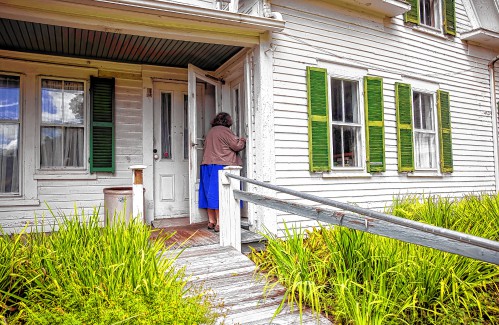 Around Concord: Eagle Pond Farm, its literary inhabitants, and the nonprofit preserving their legacy
Around Concord: Eagle Pond Farm, its literary inhabitants, and the nonprofit preserving their legacy
